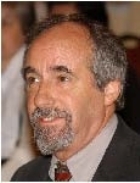ASEET2010
Academy for Software Engineering Educators & Trainers 2010
The purpose of the Academy for Software Engineering Educators & Trainers (ASEE&T 2010) is to provide an opportunity for software engineering educators and trainers to learn from faculty mentors ("master instructors") in a highly dynamic, hands-on, interactive environment.
The focus of the 2010 Academy is software architecture. Software architecture is an increasingly important discipline within software engineering and is very hard to teach the right way.
For the 2010 Academy, we are planning to invite four of the most distinguished individuals (faculty mentors) who have helped define the software architecture discipline and who have been teaching the discipline from the beginning.
The one-day Academy is an excellent opportunity for academicians new to teaching software architecture courses, including PhD students who will soon be entering academic careers, new faculty members, and mid-career faculty members who would want to be trained by "super instructors" in this emerging and increasingly important discipline.
- - - - - - - - - - - - - - - - - - - - - - - - - -- - - - - - - - - - - - - - - - - - - - - - - - - - - - - - - - - - - - - - -- - - - - -
Keynote and Faculty Mentors
The faculty mentors for the ASEE&T 2010 will include the co-authors of the three most important texts on software architecture.
Keynoter and Faculty Mentor: Professor David Garlan, Carnegie Mellon University
Co-author (with Professor Mary Shaw) of Software Architecture: Perspectives on an Emerging Discipline (Prentice Hall, 1996).
David Garlan is a Professor in the School of Computer
Science at Carnegie Mellon University, where he
leads several research projects and is the Director of
Professional Software Engineering Programs. His research
interests include: software architecture, pervasive
computing, self-healing systems, applied formal methods,
and software development environments.
- - - - - - - - - - - - - - - - - - - - - - - - - -- - - - - - - - - - - - - - - - - - - - - - - - - - - - - - - - - - - - - - - -- - - - -
Faculty Mentor: Dr. Len Bass, SEI, Carnegie Mellon University
Co-authored (with P. Clements and R. Kazman) of Software Architecture in Practice, 2nd edition, Addison-Wesley,2003)
Dr. Len Bass is a Senior Member of the Technical Staff at the Software Engineering Institute (SEI). He has written two award winning books in software architecture as well as several other books and numerous papers in a wide variety of areas of computer science and software engineering. He has been a keynote speaker or a distinguished lecturer on six continents. He is currently working on techniques for the methodical design of software architectures, to understand how to support usability through software architecture, and to understand the relationship between software architecture and global software development practices.
- - - - - - - - - - - - - - - - - - - - - - - - - -- - - - - - - - - - - - - - - - - - - - - - - - - - - - - - - - - - - - - - - - - - - -
Faculty Mentor: Dr. Eric Dashofy, The Aerospace Corporation
Co-author (with Richard Taylor and Nenad Medvidovic) of Software Architecture: Foundations, Theory, and Practice, Wiley, 2009.
Eric Dashofy is a computer scientist with a background in software architecture and software engineering. He currently work as a Senior Member of the Technical Staff at The Aerospace Corporation, a federally funded research and development center (FFRDC) in El Segundo, CA. He has a Ph.D. in Computer Science from The Donald Bren School of Information and Computer Sciences at the University of California, Irvine.
Dr. Dashofy is a co-author of Software Architecture: Foundations, Theory, and Practice, (along with Richard N. Taylor and Nenad Medvidovic, Wiley, 2009). This text is perhaps the first full-length textbook on software architecture, with a broad and comprehensive treatment of not just architecture itself, but the discipline of software engineering seen with an architecture-centric perspective.


